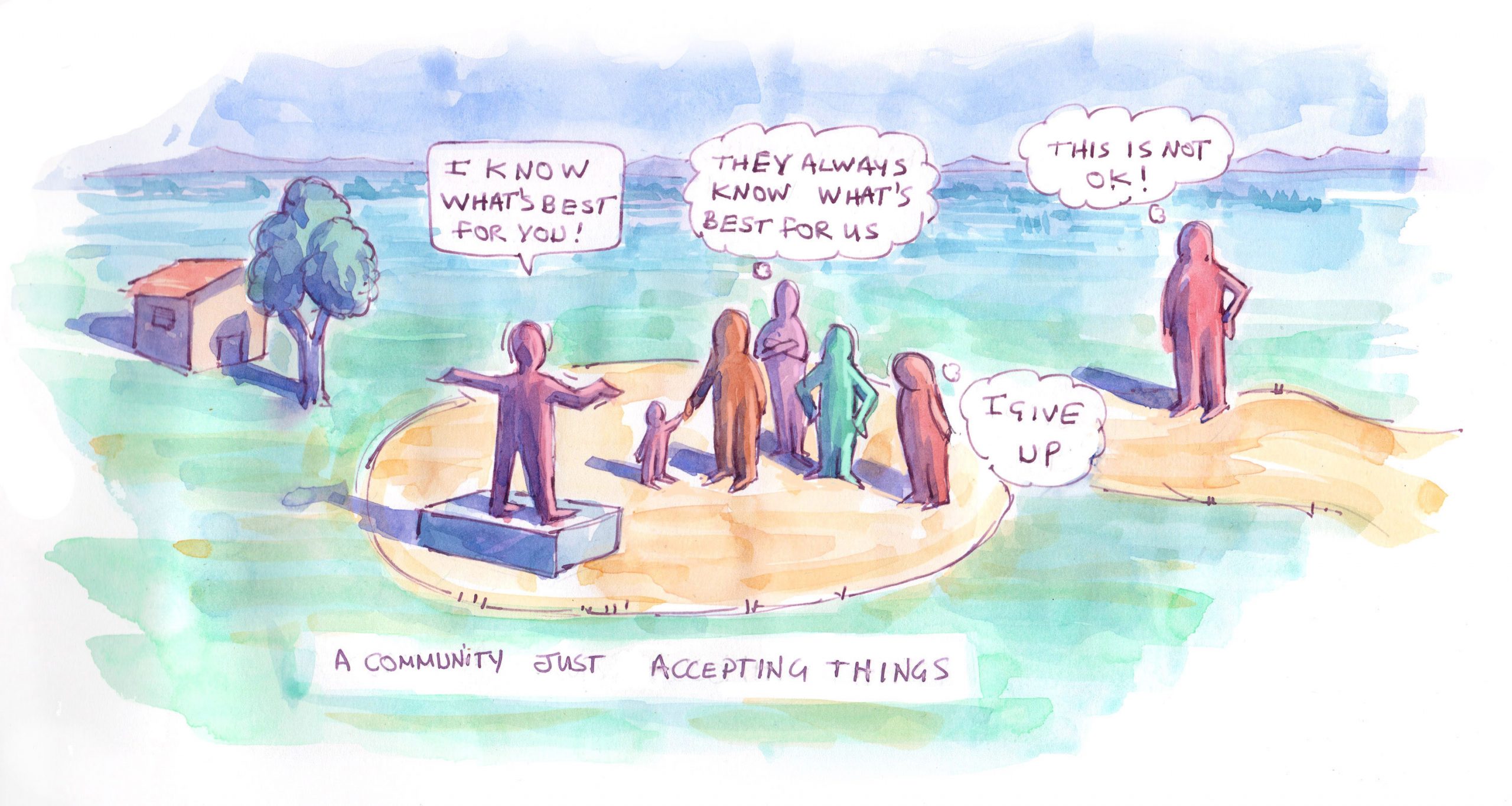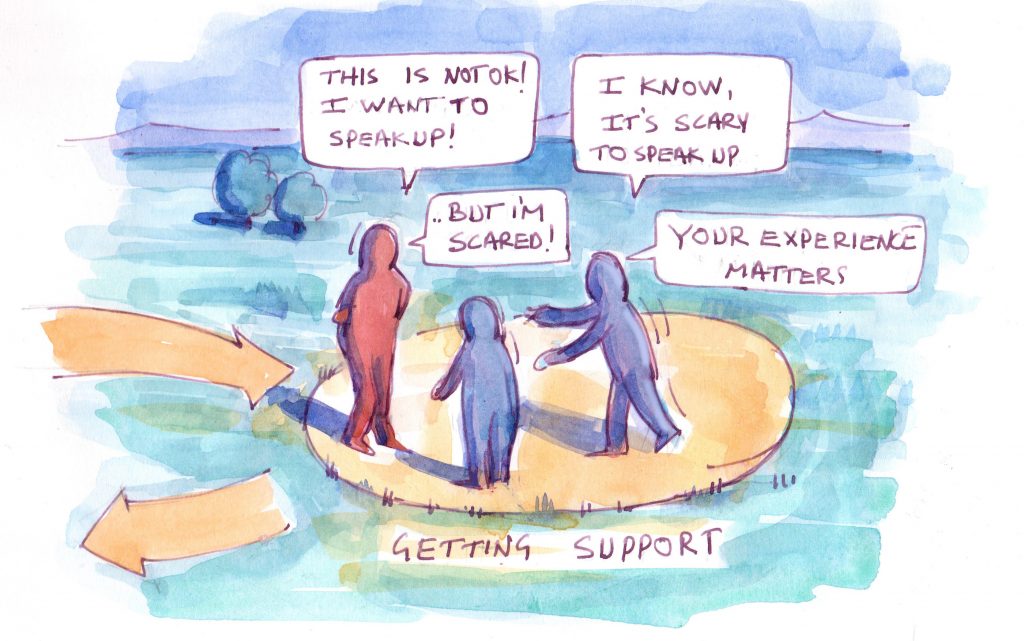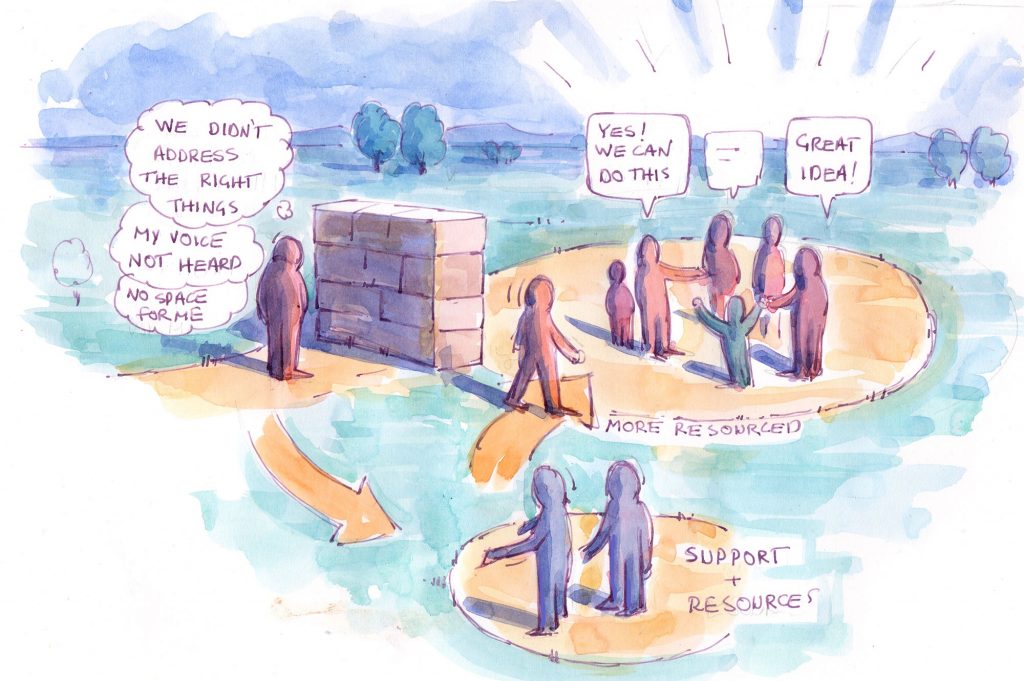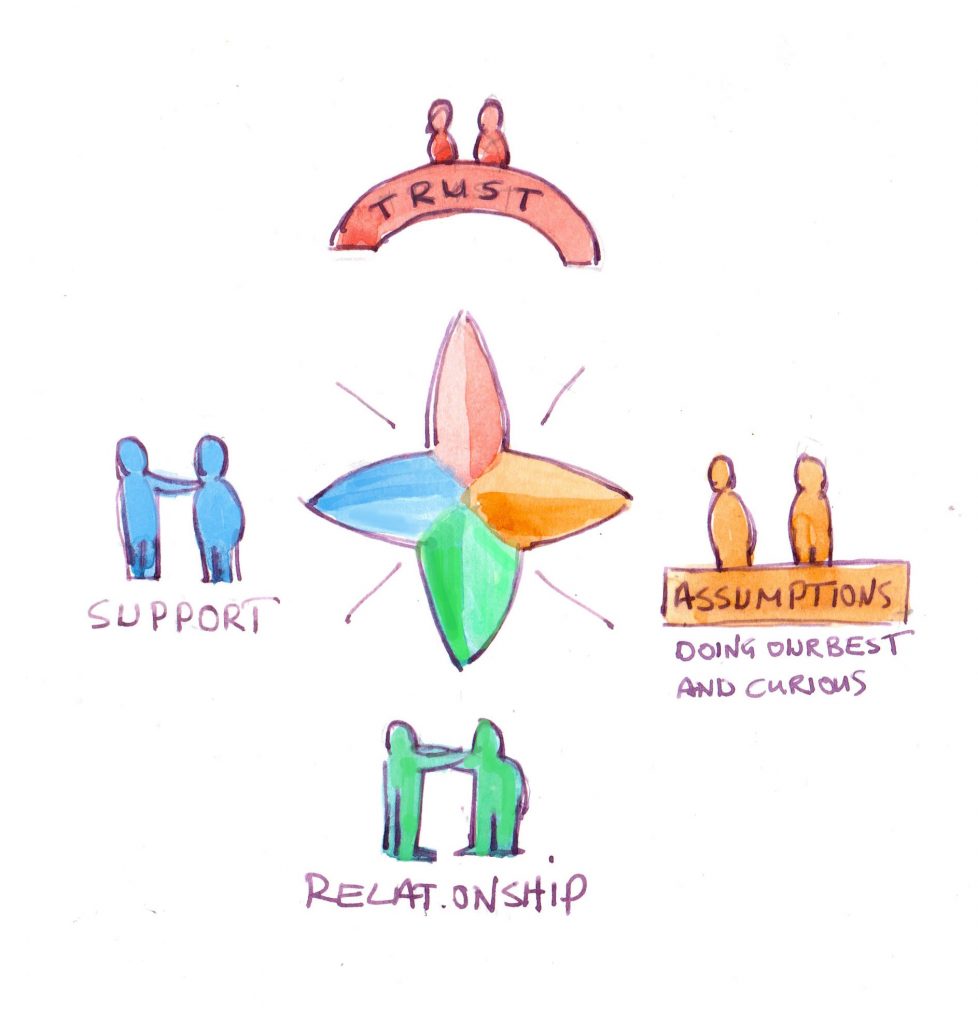First, what do we even mean by conflict?

We take conflict to mean any kind of imbalance, tension, disagreement or stress within your groups where harm or hurt is happening that isn’t being acknowledged or addressed.
We know from experience that if minor tensions aren’t dealt with early and effectively, they escalate into conflicts which then require more support to unravel and find reconnection or resolution..
Some conflicts are related to systemic issues and years of inequalities, advantages of some over others and relate to areas of race, gender, class and more.
It’s very often the case that some kind of structural inequality is relevant to the full understanding of a seemingly interpersonal conflict.

But isn’t NVC supposed to reduce conflict? ….
Learning NVC is a great tool to both pre-empt and transform conflict but have you noticed how when you are in tension around an issue, some (or all) of your NVC awareness and tools go out the window? On its own, NVC is not enough to deal with conflict.
There are also many ways of understanding NVC and of prioritising certain practices around it. Our choices here are affected by our experience in and of life.
In addition to this, learning NVC doesn’t mean I don’t have blindspots around parts of life that I know little or nothing about, for example, the experience of people with different backgrounds or cultures to me.

Growing from conflict? How does that work?
Yeah right, it’s kind of counter-intuitive in our culture isn’t it?
For conflict to be transformative there are a few conditions that really help which we’ve arranged into an acronym – STAR.

Support. You can only move through and grow from conflict if you have enough support. (Little tip: you need loads more support than you think you do 😊)
Trust. It’s essential to trust in the process, in your own experience, and that some better solution to what is currently happening is possible.
Assumption . Assume that everyone is doing their best. Get curious about what’s going on for yourself and the other person.
Relationships. It’s much easier to grow from conflict if you have good relationships to begin with. You are more likely to work at a relationship if it’s a nourishing one. Also, the good relationships that give a sense of community also support transforming conflict.
Nice Acronym .. but it sounds easier said than done. Couldn’t walking towards conflict make things worse?
Great point. Thank you! Yes, the final thing we want to add now is the importance of a little (but massive ingredient) which is self-reflection, self-responsibility and self-empathy. This is essential for this vision to come into being.
We have all grown up with a punitive justice system so it’s very common for walking towards conflict to feel like walking towards a trial. We are not saying it’s easy and that this sensation won’t happen. This is why high levels of support are also essential.
But self-reflection, self-responsibility and self-empathy are crucial. This is the piece that NVC brings and which so supports us as a community.